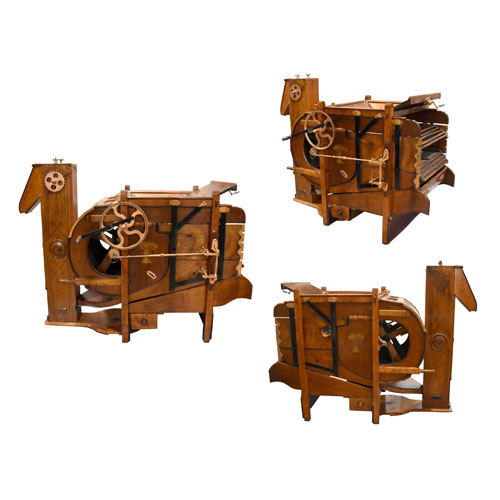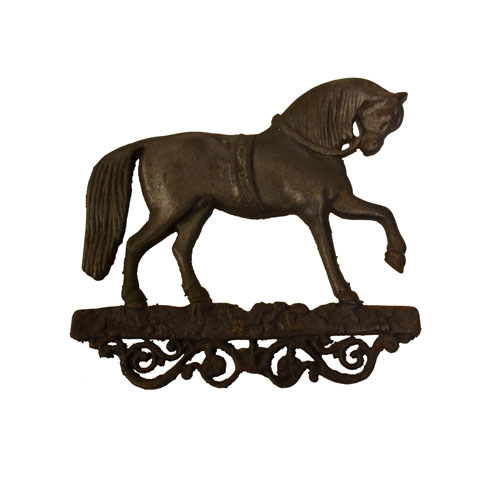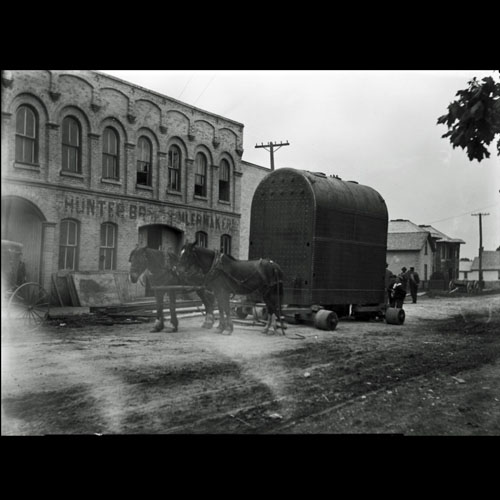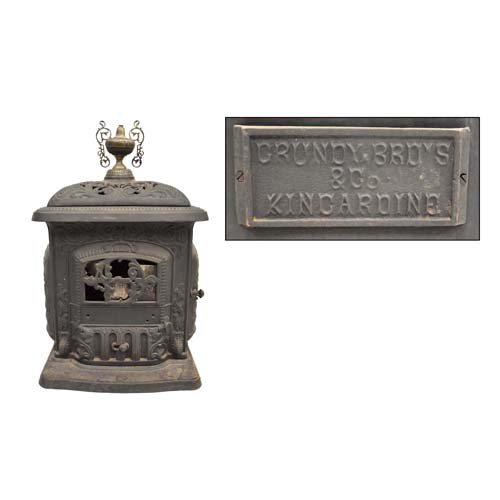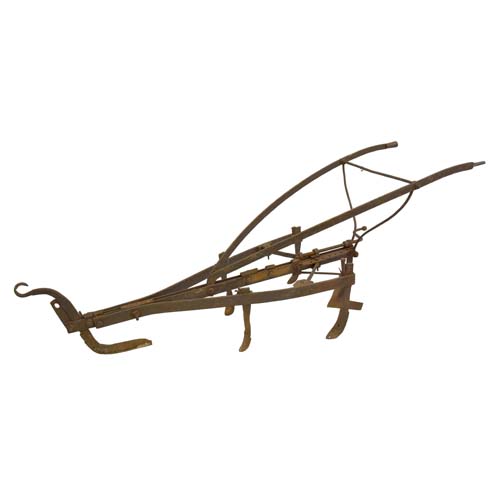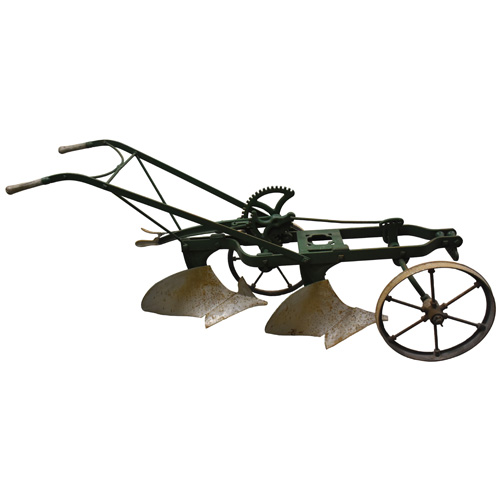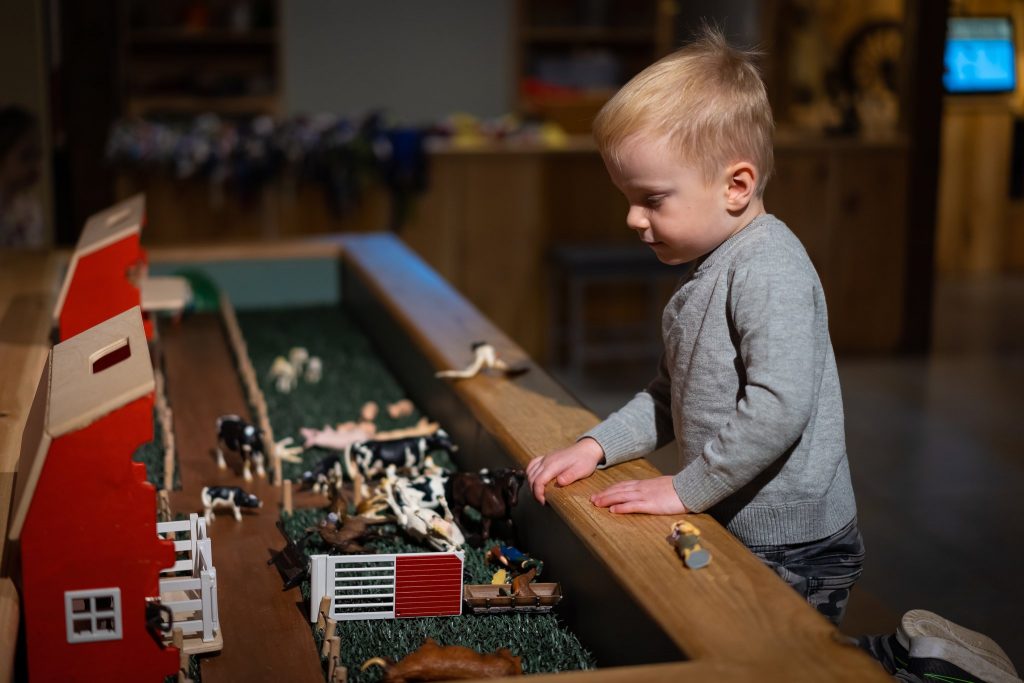A large part of settlers receiving the Crown patent for their land was the clearing and agricultural working of that land. Once the land was cleared of larger trees, and possibly burned to get rid of weeds and smaller plants, the land was ready to be worked and scuffle hoes, ploughs, and seeders were the necessary equipment to get the job done. As more and more people arrived, so too did specialists who had the knowledge to repair and manufacture farming implements. A critical part of settler life, these specialists were located in almost every community. By 1871 there were 22 tradesmen who made farming implements within Bruce County. These tradesmen ranged in occupational names and included founders, blacksmiths, carriage makers and carpenters.
Foundrymen operated foundries which made implements and other items by pouring molten metal into a mould which is removed as the metal cools. During the 1800s foundries would have been manufacturing cast iron farming tools. Alternatively, blacksmiths would be making tools by bringing raw materials such as steel to temperature and forging the tools to shape by hand. Other tradesmen such as carriagemakers would require metal parts and would also have either a forge or foundry on site, which would allow them to also produce farming implements.
Some of these operations were smaller and serviced local people while others participated within the provincial and Canadian market. Of the two fanning mill factories in Bruce by 1871, the most well known is that of W.A. Gerolamy, located in Tara. Gerolamy came to the Bruce in the late 1850s and began a partnership with John and James Tobey. He is most well known for inventing perforated zinc sieves for fanning mills and took out a patent for them in 1868. This invention led Gerolamy to receive a bronze medal at the Chicago World’s Fair in 1893 and the Paris World’s Fair in 1900. The fanning mill seen above was featured at the Chicago World’s Fair.
Another well known firm of agricultural implements was Bruce Agricultural Works, also known as Gillies & Martin. Established in 1869, the firm, under various owners made implements for almost 50 years in Teeswater. When the foundry burned in 1877, the town of Teeswater gave them a grant of $3,000 to rebuild and by 1892 they had opened a branch in Listowel. The firm was sold in 1905 to Albert Strome, whose advertisement stated they manufactured mill machinery and farm implements as well as wagons, buggies, sleighs, ploughs, harrows, land rollers, seeders, pulpers, school seats, and all kinds of plough repairs. This foundry also created the iron fence and gates at the Teeswater Creamery.
While the making of agricultural implements was both small and big business, so too were the foundries. One larger firm was Hunter Bridge & Boiler Co. of Kincardine. The company opened in 1883 when the Hunters took over the foundry and machine shop of Ira J. Fisher (who in 1871 is listed as making implements and stoves). Until 1923, the company constructed bridges, boilers, towers, and machinery. Notably their work includes several bridges in both Bruce & Huron counties, water towers in nearby towns, boilers for factories, the first rotary snowplow for use on a train in Eastern Canada, steel shell casings during the First World War, and marine tug boilers.

